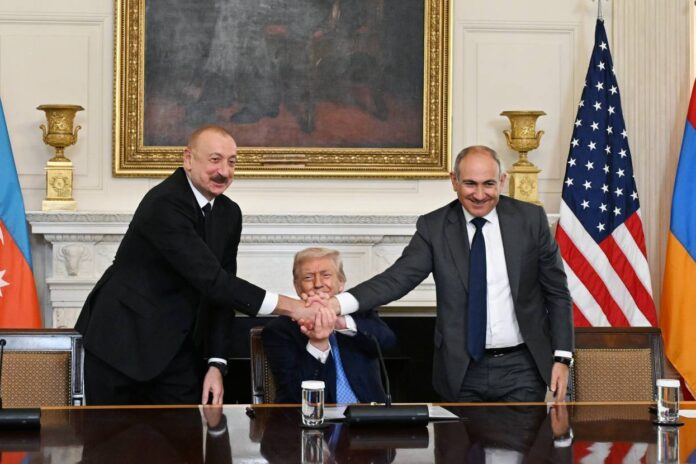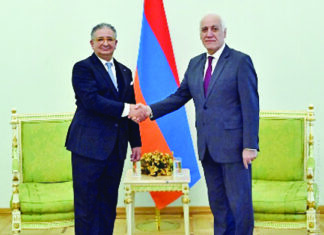WASHINGTON (Azatutyun) — Armenian Prime Minister Nikol Pashinyan reaffirmed that any transit route through Armenia, agreed upon following talks with Azerbaijani President Ilham Aliyev in the presence of US President Donald Trump, will respect Armenia’s sovereignty, jurisdiction and territorial integrity.
The agreement, reached during US-hosted negotiations on August 8, grants the United States exclusive rights to oversee the implementation of a transit road through Armenia’s southern Syunik province. The road is intended to provide unimpeded connectivity between mainland Azerbaijan and its western Nakhichevan exclave “with reciprocal benefits for international and intra-state connectivity for the Republic of Armenia.”
The full text of the agreement was released on August 11 and can be seen on this page.
Opposition groups in Armenia criticized the agreement, calling it a concession to Azerbaijan and raising doubts about its potential to secure lasting peace in the South Caucasus.
Answering questions from the media hours after the signing of the joint declaration at the White House, Pashinyan said the document did not include technical details but emphasized that all future solutions must align with the principles of sovereignty, territorial integrity and jurisdiction of the States.
Pashinyan said the inclusion of such wording, along with Trump’s verbal reiteration of the same principles, addressed public concerns over the implications of the transit project.








